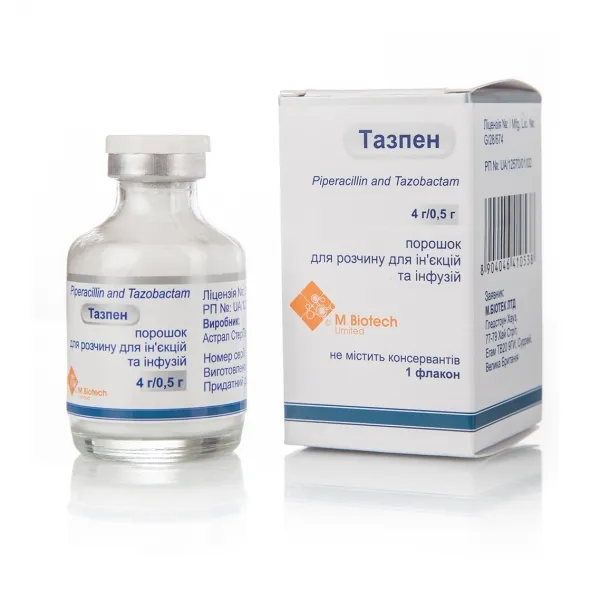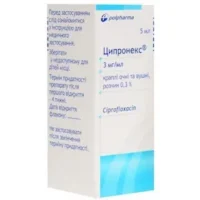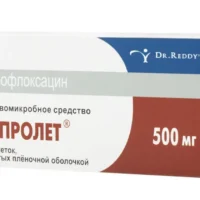Description
Tazpen (piperacillin, tazobactam) Powder for Solution for Injections and Infusions 4 g/0.5 g. №1 Vial
Ingredients
- Tazpen contains piperacillin and tazobactam as active ingredients.
- These components work synergistically to inhibit bacterial cell wall synthesis and protect piperacillin from degradation by certain beta-lactamases.
Dosage
- The recommended dosage of Tazpen for adults is typically 4.5 g every 6 hours via intravenous infusion over 30 minutes.
- Dosage adjustments may be necessary based on the severity of the infection and renal function.
Indications
- Tazpen is indicated for the treatment of moderate to severe infections caused by susceptible bacteria.
- Examples of infections include intra-abdominal infections, skin and soft tissue infections, and pneumonia.
Contraindications
- Do not use Tazpen if you have a history of severe allergic reactions to beta-lactam antibiotics.
- Caution is advised in patients with a history of hypersensitivity reactions.
Directions
- Tazpen should be reconstituted with the appropriate volume of compatible diluent as per the package insert.
- The reconstituted solution should be further diluted before administration.
Scientific Evidence
- Studies have shown that the combination of piperacillin and tazobactam in Tazpen provides broad-spectrum coverage against various Gram-positive and Gram-negative bacteria.
- Clinical trials have demonstrated the efficacy of Tazpen in treating complicated infections.
Additional Information
- It is important to monitor renal function in patients receiving Tazpen due to the risk of nephrotoxicity.
- Tazpen should be used with caution in patients with renal impairment to prevent adverse effects.
Pharmacological Effects: Tazpen exerts its antibacterial effects by inhibiting bacterial cell wall synthesis, leading to cell lysis and death. Tazobactam enhances the activity of piperacillin by protecting it from beta-lactamase enzymes, extending its spectrum of activity.
Comparative Effectiveness: Tazpen has demonstrated comparable efficacy to other beta-lactam/beta-lactamase inhibitor combinations in the treatment of various infections. Its broad-spectrum coverage and favorable safety profile make it a valuable option in clinical practice.





